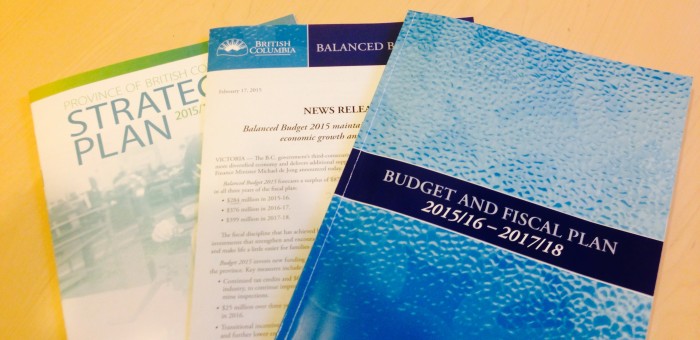Budget 2015 – Explaining my vote
Since I was first elected in 2013 I have participated in countless votes on motions, legislation, and budgets. In every single instance I have carefully considered how I should use my one vote to best represent the British Columbia I wanted to help create.
I am one of only two members in this Legislature who doesn’t have their vote decided for them by their party. That means, I am also one of only two MLAs whose vote on the budget isn’t a foregone conclusion. Before we even see the budget, we know that all BC Liberal MLAs will support it and that all BC NDP MLAs will oppose it.
This is a problem. I believe that MLAs have a responsibility to base their positions on evidence, to contribute ideas, not just criticism, and to first and foremost represent their constituents, not their parties.
MLAs are given a single vote to indicate broad support or opposition to the full suite of measures that are contained in the budget—both those that we agree with and those that we disagree with. It is impossible to properly represent the complexity of a budget vote by just looking at the vote itself. That’s why I always post my entire budget response, where I lay out my praise and concerns in detail.
After carefully reading through this budget, I found that I could not support it.
It has become increasingly clear that there is a growing trend where the government takes small steps on the periphery to make peoples’ lives better, without addressing the fundamental systemic and structural issues that underpin our biggest challenges—including affordability, sustainability and economic prosperity.
This includes how we fund government services. Through a combination of complacency and choice this government has come to rely on low and middle income British Columbians paying more than many can afford. In doing so, we help perpetuate and add to the growing affordability crisis we have in B.C.
Instead, we need government leadership that is bold enough to tackle these important structural issues. This includes shifting the way we fund government away from regressive user fees like MSP premiums, towards more progressive options, like income taxes. It also means taking real, concerted steps to mitigate and adapt to the economic, social and environmental effects climate change will have on our province. We can also be making smart targeted investments to support the development of 21st century industries like the clean tech sector, rather than simply relying on 20th century fossil fuel industries.
These are just a few alternatives that I offered in my response to the budget and my response to the throne speech.
We need leaders who will pursue opportunities and address our challenges before they arrive on our doorstep, not after. We need leadership that recognizes the importance of not only living within our means financially, but also socially and environmentally.
Comments are closed.




